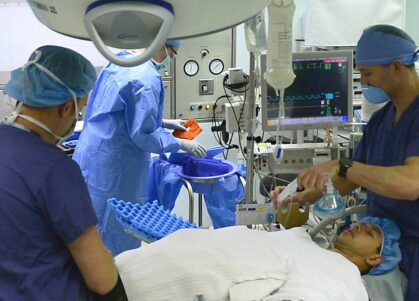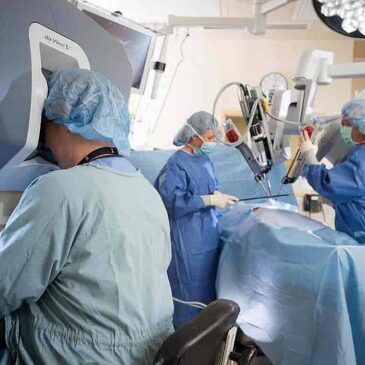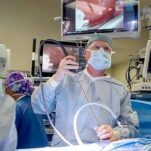Medical Innovation
- Understanding of Our DNA – Improved knowledge of and ability to synthesise DNA is leading medicine, including better treatment for facial cancers. We are now mapping every cell in the human body, to enhance these benefits.
- 3D Printing Technology — The term printing disguises a technique which could revolutionise the way we make so much. This includes creating successfully transplanted organs and 3D implants for facial reconstruction.
- Artificial Intelligence (AI) — Informed decisions come from experience and data. Neural network based AI systems process this with remarkable insight, drug development benefits, also personalised diagnosis and treatment.
- Immunotherapy (biologic therapy) — This restores and/or improves our body’s immune system. Currently being used to treat a range of cancers and holds potential for finer targeting, along with treating wider conditions.
- Virtually Reality Environments — Having initially helped with surgical training, VR and robotic tools are now part of mainstream surgery. An ability to create a remarkable replica is also helpful in planning facial surgery.
There are other areas we could mention, from video, to using the web and social media to support patient health. The benefits were evident during the coronavirus pandemic, from video consultations, to information sharing
Improved communication is a bonus for the medical profession and the patients they treat. The five areas we briefly picked out are still likely to lead the future, through what they can do and the way they can combine.
Advances Will Continue
Artificial systems can beat humans at chess, the Chinese game of go, or many practical and academic tasks. They are also reaching the point of being able to diagnose certain medical conditions more accurately than doctors.
Whilst they can not match the knowledge of a maxillofacial surgeon, we should use their strengths. One of those is an ability to process and evaluate data at a rate way beyond humans.
Professionals can share anonymised data, in an environment where cyber security and confidentiality are preserved. Millions of case notes can be managed. or research.
Alongside adopting the latest technological equipment, data management and other AI systems are the future. Personal care from a leading consultant is made more incisive, to help perfect treatment and incidentally, reduce cost.
Efficient approaches enable organisation, planning, patient monitoring. The £7 billion spent globally on healthcare can bring more, for the same spend.
Our clinicians and support staff constantly monitor developments, or are part of them. We will never lose the personal touch but for facial surgery, looking to the future has always been of value.


